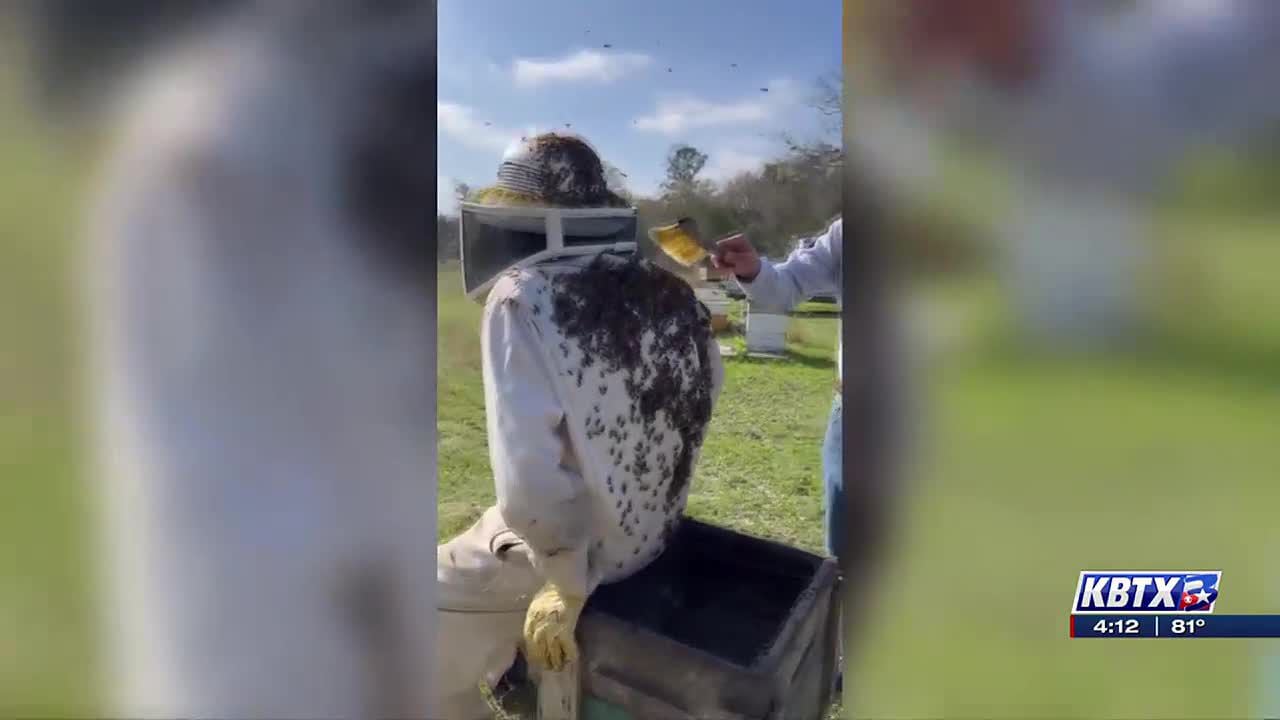Focus at Four: The buzz from a Texas “bee bill” grows local hives
BRYAN, Texas (KBTX) – Back in 2012, a bill was passed in Texas, giving landowners a tax break for beekeeping.
Since then, Texas has become a fast-growing beekeeping state, with the number jumping from under 2,000 farms to 9,000 by 2022 according to the Washington Post.
Marie Yanchak, a beekeeper at Bee Weaver, a local honey farm and business in Navasota, said the bill has directly impacted their business too because of interest in the profession.
“If you’re somebody who would love to capitalize on this tax break, but you’re not a bee person at all, we offer hive management, hive tours, beekeeping lessons, and really high-quality honey bees and Queens. That way you can become a beekeeper on your own as well. So we’re very happy with the results of this bill and with the kind of traction that has helped Texas gain,” she said.
Yanchak also mentioned that ensuring people are educated about beekeeping is a way to continue this growth.
“The USA considers honey bees to be livestock. We know that they’re not native to the United States, but they are an integral part of our agricultural systems. And so creating beekeepers that are not only good stewards of the beekeepers or of the bees, but of the environments that the bees are. In those crucial parts of creating successful beekeeping operations,” she said.
Yanchak said even if you live in an urban area, bees can pollinate and feed on anything, making them beneficial for crops, flowers, and more.
“They really capitalize on flowers that bloom throughout the year, not only in pastures but different flowering trees. It’s a great species to have within every niche of an ecosystem, you’ll see increased rates of flowers blooming of crops,” she said.
The flooding we have had recently in the area, Yanchak said, has damaged the food storage for bees in the area.
“During the rain they can’t go out and leave their hives, but a lot of times these strong rains will actually knock out like the nectar from the flowers. Although the populations themselves are relatively healthy, this can impact the overall flow we see when it comes to nectar and pollen resources in the colonies,” she said.
For the full interview, click the video player above.







